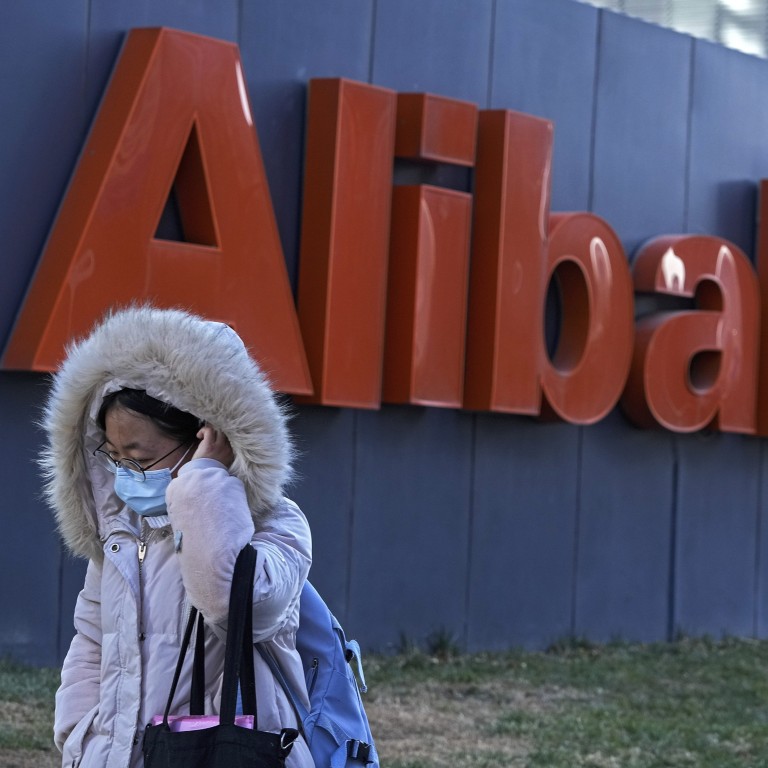
#MeToo or not: controversy lingers after Alibaba fires woman who accused boss of sexual assault
- Netizens have defended the accuser identified only as Zhou on social media after police said there was ‘insufficient evidence’ to support claims of rape
- Zhou told a local news outlet that Alibaba fired her for ‘false information’ that damaged the company’s reputation
A controversy over a sexual assault allegation at Alibaba Group Holding became a hot topic again after the e-commerce giant fired the female employee who accused her boss of sexual assault in August, but key facts are still missing about the saga that triggered debates about work culture, gender equality and #MeToo campaigns in China.
The fresh controversy started last week, when the accuser surnamed Zhou told the state-backed news outlet Dahe Daily, in Henan province, in a written interview that Alibaba fired her late last month for spreading “false information” that negatively impacted the company.
Alibaba fires manager accused of rape amid social media firestorm
Zhou’s allegations struck a chord with many workers, triggering an uproar over unhealthy work cultures that coerce employees to binge drink at business dinners. Zhou quickly became one of the most widely known people speaking out about sexual assault in China, even without disclosing her identity.
The local police authority in Jinan, where the alleged assault took place, initiated investigations and detained Wang and Zhang, the client, on August 14 on suspicion of “compulsory indecent acts”. That charge is less severe than rape, as the authorities concluded there was no evidence to back up that allegation.
Wang was not charged, according to a statement from the local procuratorate on September 6. Instead, he was detained for 15 days as an administrative punishment. Zhang, however, was officially arrested on August 26 and charged with compulsory indecent acts. No trial date has been set yet for Zhang.
The wives of Wang and Zhang have since sought to discredit Zhou with their own accounts on social media. On August 24, Wang’s wife published documents questioning the allegations and accused Zhou of fabricating facts. Zhang’s wife publicly challenged Zhou’s allegations on September 12.
Li Yonghe, another Alibaba executive fired in the wake of the allegations, filed a lawsuit against Zhou earlier this month, demanding a public apology and symbolic compensation of 1 yuan for reputational damage. No ruling has yet been issued.
Beyond just the reputations of those involved, the image of Alibaba is also at stake, along with the credibility of China’s law enforcement apparatus. However, Alibaba’s termination of Zhou has fanned the flames of her supporters online.
“[Alibaba’s termination] really sets a bad example,” one netizen commented on a post from Dahe Daily on Weibo, a Twitter-like microblogging platform. “Many women will be more reluctant to protect their rights in workplaces.”
“There would be many fewer similar cases if the drinking culture [in China’s business world] were resolved,” another wrote.
Prosecutors drop sexual assault case against ex-Alibaba manager
Alibaba, which owns the South China Morning Post, did not immediately respond to a request for comment. Zhou could not be reached by the Post.
“Regulations are tightening up … In such an environment, internet companies should make adjustments both internally and externally,” said Zhang Xiaorong, director of the think tank Beijing Cutting-Edge Technology Research Institute. “Internally, the companies should really care more about their employees and protect their rights.”
As debate about China’s work culture continues, big employers like Alibaba could find themselves under more scrutiny in the future, according to Allison Malmsten, marketing director at Daxue Consulting.
“As more national attention is being paid to toxic work culture, big tech companies want to stay out of trouble,” Malmsten said. However, she added, “unless there are changes to the workload or expectations, changing the work culture is unlikely.”


